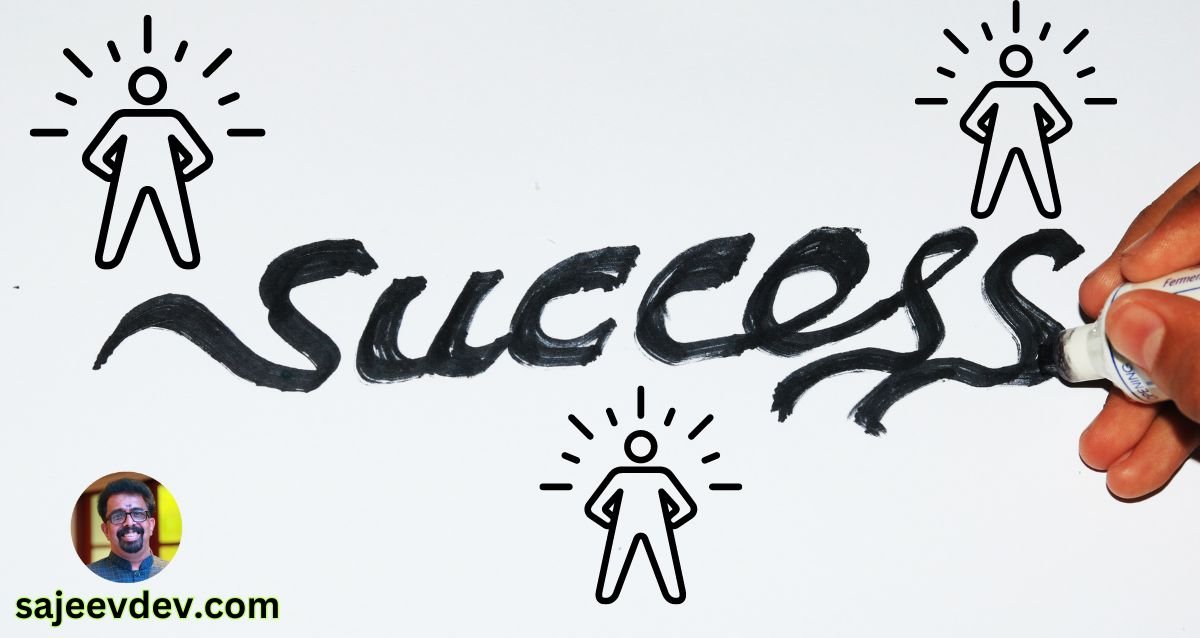The Power of Timing
The journey of life is often characterized by its inherent unpredictability, requiring individuals to embrace the concept of timing. Trusting the timing of your life signifies recognizing that events and opportunities unfold according to their own natural cadence. This perspective encourages individuals to adopt a patient mindset while navigating personal and professional milestones. It is essential to acknowledge that in our fast-paced world, the tendency to rush can pave the way for needless stress and disappointment.
Moreover, the power of timing extends beyond mere waiting; it involves cultivating faith in one’s journey. Each individual’s path is unique, marked by various experiences that contribute to personal growth and understanding. Rather than being consumed by anxiety over what has not yet occurred, individuals are encouraged to appreciate the present moment and its lessons. Life’s intricacies often reveal that the most fulfilling experiences emerge when one least expects them, underscoring the value of patience.
Subsequent sections of this blog post will delve deeper into various aspects of trusting life’s timing. We will explore the role of patience in personal and professional development, how faith influences our perceptions of timing, and strategies for embracing unpredictability. By examining these components, readers will gain a clearer understanding of how to navigate their journeys more gracefully, fostering resilience despite challenges. Ultimately, considering these insights can lead to a more fulfilling life, one where confidence in timing transforms potential delays into opportunities for growth. Recognizing that everything happens in its own time is a vital step towards achieving inner peace and lasting fulfillment.
Understanding Life’s Natural Rhythm
Life, much like nature, follows a distinct rhythm and pace that can often be observed through various cycles and seasons. Each phase of human experience is akin to the changing seasons in the natural world, highlighting the importance of growth, rest, and renewal. Recognizing these rhythms is essential for individuals striving to align their goals and expectations with the reality of their journey.
Seasons of growth are often characterized by a feeling of motivation and forward momentum. During these times, individuals may find themselves filled with inspiration, enabling them to pursue their passions and aspirations fervently. This phase may resemble spring, where new beginnings and possibilities abound, making it easier to take action. However, akin to nature, growth cannot be sustained indefinitely; there are necessary periods of rest and reflection. Just as fall leads to winter, individuals too must embrace downtime to recharge and cultivate inner wisdom.
Periods of rest in life can be challenging to navigate, as society often emphasizes constant productivity and achievement. Understanding that these moments are essential for long-term progress can foster a sense of peace and acceptance. Just as the earth regenerates during the quiet of winter, individuals can use these times to reflect on their goals and recalibrate their ambitions to ensure they are in harmony with their true selves.
In recognizing life’s natural rhythms, individuals can develop a deeper sense of patience and faith in their journey. Instead of forcing outcomes or adhering to an unrealistic timeline, one can cultivate an understanding that every stage of life has value. By aligning their expectations with the cycles of growth and rest, individuals can achieve fulfillment and lasting success, allowing them to trust the timing of their lives.
The Importance of Patience in Personal Growth
Patience plays a crucial role in personal growth, serving as a foundation upon which mastery and self-improvement are built. The journey towards becoming the best version of oneself often requires time and effort, and understanding this concept is fundamental to fostering resilience and perseverance. Too often, individuals rush through their developmental processes, seeking instantaneous results, only to find themselves disillusioned when they do not meet their own expectations.
Consider the story of J.K. Rowling, the author of the Harry Potter series. Rowling faced numerous rejections from publishers before finally achieving success. Her journey took time, requiring her to hone her craft and develop her unique voice as a writer. It was not until she embraced the patience necessary for growth that she saw her dreams come to fruition. This illustrates the premise that personal development is rarely an overnight phenomenon; rather, it involves enduring challenges and setbacks that ultimately contribute to success.
Moreover, the importance of patience is not limited to the arts. Take Thomas Edison, a renowned inventor, who famously stated, “Genius is one percent inspiration and ninety-nine percent perspiration.” His relentless pursuit of innovation encompassed failures and iterations that spanned years, proving that mastery often necessitates a patient and persistent approach. Through these examples, it is evident that allowing oneself the grace to grow gradually is essential in cultivating lasting change.
In the modern world, where instant gratification is increasingly sought after, it can be easy to overlook the value of patience. Yet, it is crucial to recognize that true growth requires an investment of time and a willingness to embrace the process. By understanding that mastering an area of personal development necessitates patience, individuals can better navigate their journeys and appreciate the progress they achieve along the way.
The Dangers of Comparison
In today’s fast-paced world, influenced heavily by social media, the tendency to compare oneself to others has reached unprecedented levels. Social platforms often highlight idealized versions of life, showcasing achievements and milestones that can create an unrealistic benchmark for personal success. As individuals scroll through curated images and compelling narratives of others’ journeys, they may unknowingly foster a sense of inadequacy about their own experiences. This has become a significant psychological concern, leading to dissatisfaction and anxiety among many.
Comparing one’s life to that of others can manifest as a detrimental mindset, causing people to overlook their unique paths. It fosters feelings of envy, lowers self-esteem, and can even lead to an identity crisis. As one observes the apparent success and happiness of peers, there is a subconscious pressure to achieve similar milestones within a constrained timeline. This incessant pursuit of external validation can steer individuals away from their inherent passions and disrupt their ability to appreciate their current circumstances.
To counteract the adverse effects of comparison, cultivating self-compassion is essential. This process begins with acknowledging one’s unique journey and understanding that each person’s timeline is different. Engaging in mindful reflection can help individuals identify personal goals that resonate with their values rather than societal expectations. Furthermore, unfollowing accounts that trigger feelings of inadequacy or negativity can significantly improve one’s mental well-being.
Practicing gratitude can also shift focus away from what others have achieved and bring awareness to one’s accomplishments, no matter how small they may seem. By fostering an attitude centered on self-acceptance and accountability, individuals can embrace their unique paths without succumbing to the temptations of comparison. As we navigate our journeys, it is crucial to remember that true fulfillment arises not from external comparisons, but from an authentic appreciation of our own experiences.
Cultivating Faith in Your Journey
Faith plays a pivotal role in our personal journeys, serving as a bridge between our actions and the unfolding of our destinies. Cultivating faith in your unique life path involves embracing the idea that every experience, no matter how challenging, contributes to your growth and development. Embracing this perspective can lead to greater resilience and patience, allowing individuals to navigate life’s uncertainties with confidence.
One effective practice to foster this sense of faith is mindfulness. By anchoring ourselves in the present moment, we can become more attuned to our inner thoughts and feelings, recognizing patterns and insights that might otherwise go unnoticed. Mindfulness encourages us to observe our experiences without judgment, facilitating a deeper appreciation for the journey itself. As Thich Nhat Hanh wisely stated, “The present moment is filled with joy and happiness. If you are attentive, you will see it.”
Another valuable tool is meditation, which can significantly enhance our ability to cultivate faith. Regular meditation practice helps quiet the mind, enabling us to connect more deeply with our inner selves and the universe. This connection fosters a sense of trust in the process of life, reinforcing the belief that everything unfolds in its own time. Anecdotal evidence suggests that many individuals find clarity and strength during their meditation sessions, as it allows them to reflect on their paths with renewed hope.
Additionally, journaling serves as a powerful means of externalizing thoughts and emotions, further deepening our understanding of our journeys. By documenting experiences and feelings, we can track our progress and recognize patterns that reveal our growth. As we pen our reflections, we create a tangible record of our faith and aspirations, affirming our commitment to trust the timing of our lives.
Ultimately, by integrating mindfulness, meditation, and journaling into our daily routines, we can cultivate a profound sense of faith in our unique journeys, allowing us to navigate life’s complexities with grace and confidence.
Setting Realistic Goals and Timelines
In the journey of life, setting realistic goals is paramount to achieving personal fulfillment and success. It is essential to establish objectives that consider one’s unique circumstances while respecting the inherent unpredictability of life. By approaching goal-setting with flexibility and adaptability, individuals can navigate the challenges that may arise along the way, fostering a greater sense of patience and faith in their journey.
To begin, it is advisable to break down larger goals into smaller, manageable steps. This method not only renders daunting ambitions more approachable but also provides a clearer path toward accomplishment. For instance, if a goal pertains to career advancement, one might first identify necessary skills, seek relevant training, and subsequently pursue networking opportunities. By fragmenting goals in this manner, individuals can focus their efforts on achievable actions and monitor their progress more effectively.
Furthermore, timeframes necessity can vary significantly between individuals. Thus, it is prudent to allow for adjustments in the timelines associated with each goal. Life’s circumstances are often unpredictable, and a rigid commitment to specific deadlines can lead to undue stress and disappointment. Instead of viewing timelines as strict limits, consider them benchmarks that can be refined as new information and experiences emerge. By cultivating a mindset that embraces change and unexpected events, one can foster resilience and maintain motivation in the face of obstacles.
Lastly, it is crucial to periodically reassess goals and timelines. Engaging in regular self-reflection can illuminate whether current objectives still resonate with personal values and aspirations. If necessary, it may be time to refine or redefine those goals to better align with your evolving journey. The combination of realistic goal-setting with a flexible timeline ensures that setbacks do not derail progress but rather serve as opportunities for growth and learning.
Trusting the Process: Real Stories of Success
The journey to success often requires more than just skill and ambition; it necessitates a profound trust in the timing of one’s life. Numerous individuals have shared their inspiring stories, demonstrating how perseverance and faith in their unique timelines led them to achieve their aspirations, despite facing various challenges along the way.
One remarkable example is that of J.K. Rowling, the acclaimed author of the “Harry Potter” series. Before her meteoric rise to fame, Rowling experienced numerous rejections from publishers, financial struggles, and personal hardships. Instead of yielding to despair, she continued writing and honing her craft. Rowling’s journey highlights that success is not an overnight phenomenon; rather, it is often the result of patience and resilience. Her unwavering belief in her story ultimately manifested into the global phenomenon we know today, emphasizing the importance of trusting the process.
Another compelling narrative is that of Oprah Winfrey, a media mogul who faced a tumultuous childhood filled with adversity. As a young woman, Oprah encountered multiple setbacks, including job losses and discrimination. However, she remained steadfast in her vision and consistently pursued opportunities that aligned with her aspirations. Her journey underscores the significance of maintaining faith in oneself and the timing of life; Oprah’s perseverance transformed her into an influential figure worldwide.
Similarly, the journey of Steve Jobs serves as a testament to the power of patience. After being ousted from Apple, the company he co-founded, Jobs continued to innovate and explore new avenues. He eventually returned to Apple, leading it to unprecedented success. His story reminds us that timing can bring unexpected opportunities and that trusting the process can yield fulfilling outcomes.
These narratives reinforce the notion that success is frequently a journey rather than a destination, an odyssey defined by resilience, patience, and unwavering belief in one’s path. As these individuals demonstrate, trusting the timing of your life can be a catalyst for incredible transformation.
Practical Tips for Embracing Life’s Timing
Embracing the timing of your life requires conscious effort and dedication. Developing practices that cultivate patience and mindfulness can significantly enhance one’s journey. One effective way to start is by incorporating mindfulness exercises into your daily routine. Mindfulness involves paying attention to the present moment without judgment. Try dedicating just a few minutes each day to meditation or deep-breathing exercises; these can help center your thoughts and create a deeper sense of awareness about your life’s timing.
Gratitude practices are another excellent tool to align with life’s timing. Keeping a gratitude journal allows you to reflect on what you appreciate about your life each day. This practice not only shifts your focus from what you lack to what you have but also nurtures an understanding that every moment has its own significance. By acknowledging and celebrating small victories and experiences, you can cultivate a more patient attitude toward timelines.
Another strategy for fostering patience is to set realistic goals. Life can often feel rushed, leading to frustration when things do not happen according to plan. Break your larger goals into smaller, manageable steps and celebrate each completion. This incremental approach allows you to appreciate the time it takes to achieve each milestone, reinforcing the belief that life’s timing is optimal.
Engaging in regular self-reflection can further assist in aligning your life with its natural rhythms. Set aside time to evaluate your progress and identify areas where you may need to exercise more patience or adaptability. Creating a support network is also vital; surround yourself with individuals who share similar values and encourage you to embrace the timing of life. Through these practical suggestions, you can integrate the principles of patience and faith into your daily existence, ultimately enriching your journey.
As we reflect on the multifaceted aspects of navigating life, it is essential to acknowledge that each individual’s journey is inherently unique
As we reflect on the multifaceted aspects of navigating life, it is essential to acknowledge that each individual’s journey is inherently unique. While some may find themselves progressing rapidly toward their goals, others may encounter delays or unexpected detours. This variance is a natural component of life, and it is vital to honor one’s own path, regardless of the pace at which it unfolds. Trusting the timing of your life involves recognizing that divergence can offer valuable lessons and experiences that contribute to personal growth.
Throughout this discussion, we have explored how practicing patience can enrich our lives. Patience allows us to cultivate resilience in the face of uncertainty while positioning us to face challenges with greater fortitude. Moreover, having faith in the processes that shape our journey can help alleviate the anxiety often associated with unmet expectations. Embracing the idea that everything happens in its own time can lead to a more fulfilling experience, fostering a sense of peace within.
Additionally, by understanding that other people’s timelines may differ greatly from our own, we can practice empathy and support one another in our respective journeys. Acknowledging this universality of experience allows us to forge deeper connections and celebrate the diverse paths that our peers traverse. Life is not merely a race; rather, it is a series of interconnected moments that shape our identities and reveal our truths as we navigate through challenges and triumphs alike.
In conclusion, embracing your unique journey entails honoring your own timeline, advocating for patience and faith, and understanding the intricacies of life’s unfolding narrative. As we move forward, may we all learn to trust the timing of our lives and celebrate the individual stories that we each have to tell.



